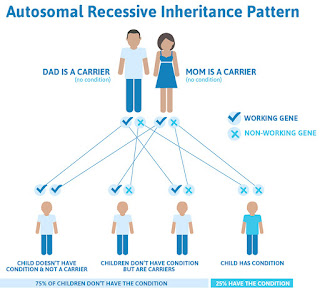Applications of genome editing technology in the targeted therapy of human diseases: mechanisms, advances and prospects
Call To Screen Newborn Babies For 22q Genetic Condition
Eloise Lee was diagnosed with 22q when she was 11 months, and is taking part in the Cardiff study
Campaigners are calling for newborn babies to be screened for a "massively misdiagnosed" genetic condition.
The symptoms of 22q11.2 deletion syndrome can range from mild behavioural issues to serious physical and psychological complications.
Cardiff University scientists have been studying the condition and the impact it has on at least one in 2,000 UK babies per year.
They include three-year-old Eloise Lee, who was diagnosed at 11 months.
Her mother Dawn said she had a number of "niggles" as Eloise was slow in reaching her milestones, not feeding properly and was a very quiet baby.
But 22q was not picked up until after two major operations.
Ms Lee said: "A lot of people are not aware of 22q, even now when speech therapists came out last week, I asked whether they were aware of 22q and they weren't."
Eloise's development is being assessed by the Cardiff researchers through play activities, and they said they were pleased with her progress.
The study found 22q is linked to a number of problems which, according to Prof Marianne van den Bree leading the research, can be misunderstood.
"Some parents who took part in the study told us that schools don't understand that the children have a genetic condition and they think that the child is just naughty," she said.
"Other parents told us that when their child was behaving in a certain way sometimes the parents are blamed for not being good parents."
Julie Wootton with her son Max, who died of complications from 22q
Julie Wootton set up The Max Appeal charity in memory of her son Max who died from complications arising from 22q.
She said the syndrome is "massively misdiagnosed" and should be included in the heel prick test for newborns - which screens for disorders such as cystic fibrosis.
Prof van den Bree added: "Despite 22q now being considered as one of the most common genetic conditions, there is still much to be learnt about what this means for those affected.
"Our research is expanding knowledge on the mental health aspects associated with the syndrome, to help identify how children and adults can be best supported during their lives.
"It is clear from our research so far that there is still a lack of awareness - among the medical community as well as the public. Our work is part of a drive to change that."
The condition involves a section of a chromosome being missing, and there can be up to 180 possible symptoms including congenital heart defects, a cleft palate and slow development.
The UK national screening committee, which advises on the implementation of screening programmes, said it would welcome considering any evidence.
Genetic defect link to Parkinson's disease
Genetic test to detect heart attack risk
How knowing your genetic code could lengthen your life
Hospitals 'failing' on bowel cancer test
The genetic defect nobody knows
Velo-Cardio-Facial Syndrome
Crossref Citations
This Book has been cited by the following publications. This list is generated based on data provided by Crossref.Palomo, Tomas Kostrzewa, Richard M. Beninger, Richard J. And Archer, Trevor 2008. Schizopsychotic symptom-profiles and biomarkers: Beacons in diagnostic labyrinths. Neurotoxicity Research, Vol. 14, Issue. 2-3, p. 79.
Prasad, Sarah E. Howley, Sarah and Murphy, Kieran C. 2008. Candidate genes and the behavioral phenotype in 22q11.2 deletion syndrome. Developmental Disabilities Research Reviews, Vol. 14, Issue. 1, p. 26.
Looman, Wendy S. Thurmes, Anna K. And O'conner-Von, Susan K. 2010. Quality of Life among Children with Velocardiofacial Syndrome. The Cleft Palate-Craniofacial Journal, Vol. 47, Issue. 3, p. 273.
Dimond, Rebecca 2014. Negotiating identity at the intersection of paediatric and genetic medicine: the parent as facilitator, narrator and patient. Sociology of Health & Illness, Vol. 36, Issue. 1, p. 1.
Dimond, Rebecca 2014. Parent-led conferences as sites of medical work. Health: An Interdisciplinary Journal for the Social Study of Health, Illness and Medicine, Vol. 18, Issue. 6, p. 631.
Dimond, Rebecca 2014. Negotiating blame and responsibility in the context of a "de novo" mutation. New Genetics and Society, Vol. 33, Issue. 2, p. 149.
Bose, Anushree Shivakumar, Venkataram and Venkatasubramanian, Ganesan 2018. Hallucinations in Psychoses and Affective Disorders. P. 133.
Pereira, Valerie J. So, Janet Y.T. Tsang, Joy M.K. Choi, Wing S. Tong, Michael C.F. And Lee, Kathy Y.S. 2023. Speech Telepractice and Treatment Intensity in a Cantonese-Speaking Case with 22q11.2 Deletion Syndrome Following Late Diagnosis and Management of Velopharyngeal Dysfunction. The Cleft Palate Craniofacial Journal, Vol. 60, Issue. 11, p. 1505.
Getting To The Heart Of DiGeorge Syndrome
Cite this articleSchinke, M., Izumo, S. Getting to the heart of DiGeorge syndrome. Nat Med 5, 1120–1121 (1999). Https://doi.Org/10.1038/13438
Share this article Get shareable link

Comments
Post a Comment